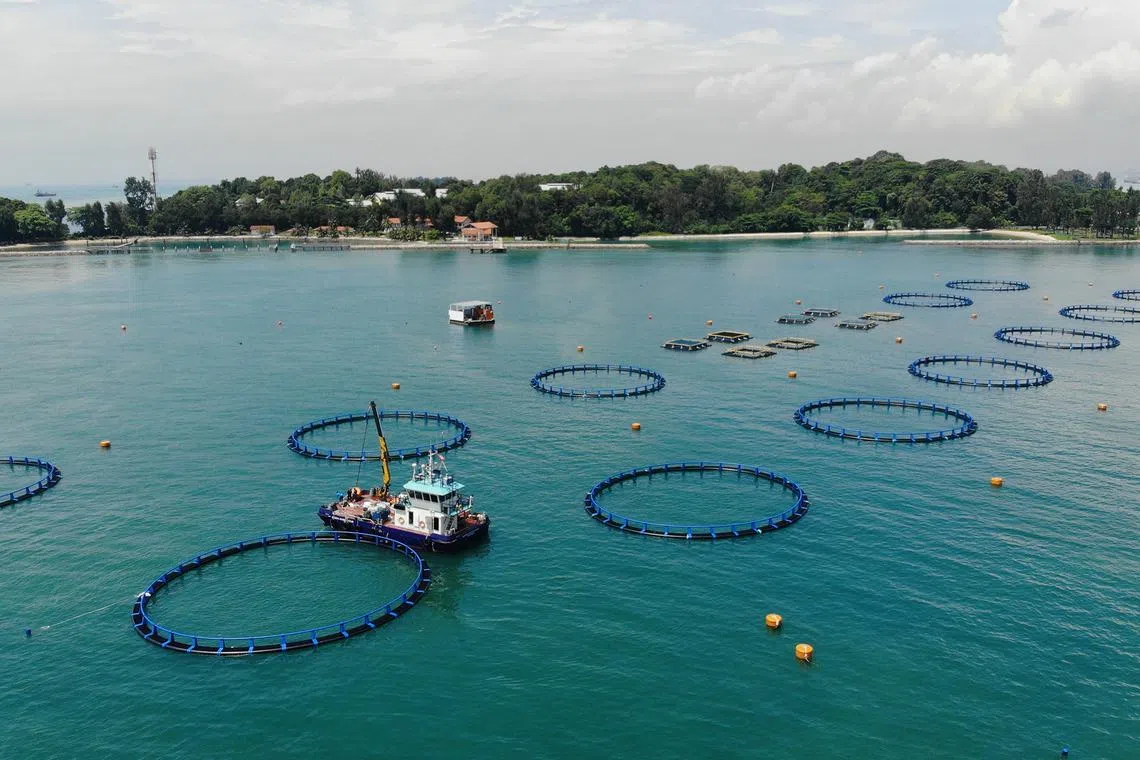Fish farm operator Barramundi’s first-half net loss narrows to $5.2m despite revenue slip
Sign up now: Get ST's newsletters delivered to your inbox

The company had harvested all its barramundi in Singapore in June, due to outbreaks caused by the scale drop disease virus.
PHOTO: BARRAMUNDI GROUP
SINGAPORE - Barramundi Group, the only operator of fish farms in Singapore’s southern waters, on Wednesday narrowed its net loss for the first half-year ended June 30 to $5.2 million, from a loss of $12.1 million in the corresponding year-ago period.
This was attributed to “proactive cost management strategies and operational adjustments executed” in this period, the group said.
This includes streamlining headcount and processes in Singapore and Brunei, reducing administrative expenses, and trimming executive salaries.
Loss per share came in at $0.12959, based on a total shareholding of 40.4 million.
Revenue slipped 1.6 per cent to $16.6 million from $16.9 million. This came as the company’s sales volumes fell to 714 tonnes whole fish equivalent (WFE) in this half year, from 930 tonnes WFE in the first half of FY2022.
WFE is an industry standard measurement that refers to the weight of the fish after bleeding.
The fall in revenue was offset by increased retail prices and higher contribution from Fassler Gourmet, the group’s products processing subsidiary.
The company had, earlier in June, harvested all its Asian sea bass,
The pathogen, which occurs naturally in Singapore and parts of South-east Asia, can kill more than half a pen of barramundi, which is often touted as the salmon of the tropics.
This resulted in sales limitations in the Singapore market, said the group. Its Singapore revenue came in at $2.1 million, down 41.8 per cent from $3.6 million.
The group has since harvested the remaining biomass to optimise its operational efficiency, and will repurpose infrastructure in Brunei.
It also noted that the cessation of sea farm operations in Singapore had helped to relieve cash flow pressures.
Its Singapore site will now focus on producing superior barramundi fry and fingerling in Singapore from the company’s genetics and breeding programme.
A spokesman for the company in July noted that operations in Singapore will also be centred on aqua-tech capabilities such as vaccine and therapeutics development, veterinary and animal health, and broodstock (fish used for breeding purposes) research and development.
The company also noted it had “removed the financial drain” from its Australia business by placing it under voluntary administration. Two subsidiaries, MPA Fish Farms and MPA Marketing, were acquired by Australia-based salmon farm operator Tassal Group on July 31, but its results were not separated in its first-half figures.
Barramundi Group’s operations in Brunei are now central to its growth strategy, as it has over 8,000ha of sea and land leases, an operational recirculating aquaculture system nursery, and a diagnostic lab for fish and autogenous vaccines under its UVAXX brand.
Barramundi Group trades on the Euronext Growth Oslo, a bourse in Norway. It last traded at four Norwegian kroner on Aug 7. THE BUSINESS TIMES


